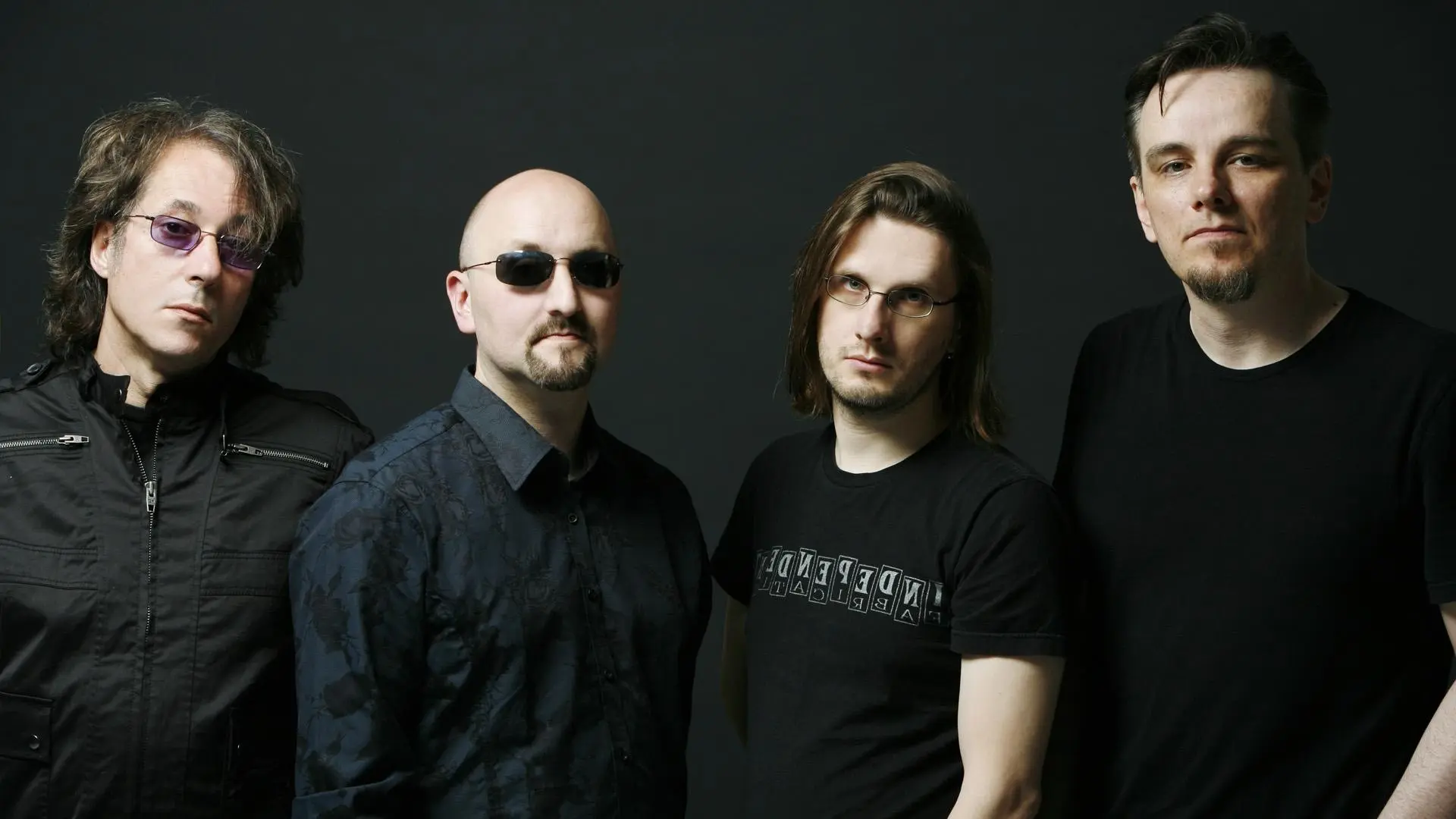
Written by Oskar Vier
Published on 20.03.2025
I went back to revisit all albums of the band and solo artist I was obsessed with a few years ago, then fell out of love with and felt pretty disconnected from ever since.
Discography Deep Dive Revisited: Porcupine Tree & Steven Wilson
About four years ago I was obsessed with Porcupine Tree and Steven Wilson. I was about 18 years old, finishing school, and then I was moving out of my father's home into a new city, starting to study at the local University. Through all of this, Porcupine Tree and Steven Wilson accompanied me – with new albums even as Wilson released “THE FUTURE BITES” and Porcupine Tree later reunited to release “CLOSURE / CONTINUATION”. I also saw Porcupine Tree on tour in Berlin. It was a pretty great show even in hindsight. Now, with Steven Wilson returning to his Prog roots on his latest solo album “The Overview”, I decided to revisit what was, for a time, my favorite musical artist's big two projects. Under this preface, it should be self-explanatory that I have somewhat grown out of the band in the past. I think it was in about 2022 when I got into listening to new releases weekly and really branched out into genres outside of Rock music. When I was still obsessed with Porcupine Tree and Steven Wilson, I'd gotten almost all the albums on vinyl. I sold some of them already. The early Porcupine Tree ones especially, which is why I won't go over them in detail here. Nevertheless, they are where it all started, so I'll at least briefly review them, starting with “Up the Downstair”, which I view as the first real Steven Wilson/Porcupine Tree album. From there, we will go chronologically through the catalogue of Porcupine Tree and then Steven Wilson's solo career. Let's go!
“Up the Downstair” (2004 Version) (Porcupine Tree, 1993)
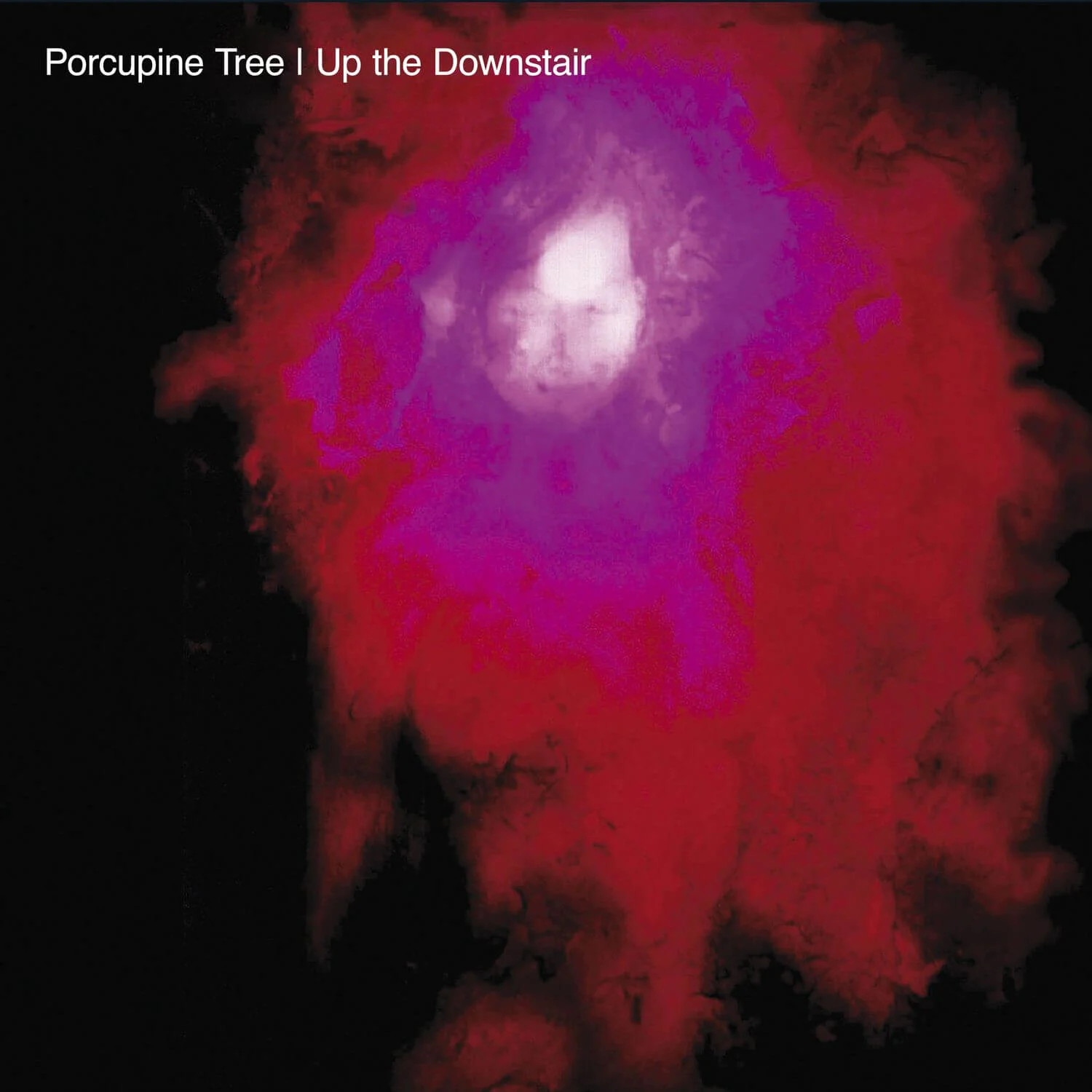
After what is mostly marketed as Porcupine Tree's debut album, “On the Sunday of Life”, which was truthfully more of a compilation of very fleshed out early demos and song ideas, Steven Wilson released “Up the Downstair” under the moniker. Porcupine Tree, by this point, was not really a band, but more of a Steven Wilson solo project (it would stay like that until “Signify”). But that's where it gets a little complicated with “Up the Downstair”. You see, the original album contained 4 pieces made up of 10 tracks overall and all songs were mainly written by Wilson with only three performances by the other musicians, who would later form the band Porcupine Tree. That's not the version we're talking about here though. Instead, I consider the 2004 re-release of “Up the Downstair” as the canonic and relevant version. The key difference is that it contains original drum tracks by Gavin Harrison, the man who would become the drummer of Porcupine Tree in 2002, which replaced the drum machine Wilson had employed on the original 1993 album. This was a huge improvement for the album and a meticulously made decision by Wilson to modernize his legacy. And while it definitely makes “Up the Downstair” a more enjoyable listen, it doesn't changes the album fundamentally. The songs and all the rest of the performances are practically unaltered, revealing an album that isn't particularly engaging or groundbreaking. Sonically, this is an Acid Rock-inspired Psychedelic Rock of Prog dimensions, in form comparable to something Pink Floyd released between “A Saucerful of Secrets” and “Animals”, but lacking in musical experimentation, memorable songwriting and lyrical content (quantitatively and qualitatively). At its best, “Up the Downstairs” can be considered good; at its worst sufficient.
Best Tracks: “Synesthesia”, “Always Never” & “Fadeaway”
Lowlights: “Up the Downstair”, “Not Beautiful Anymore” & “Small Fish”
“The Sky Moves Sideways” (2004 Version) (Porcupine Tree, 1995)
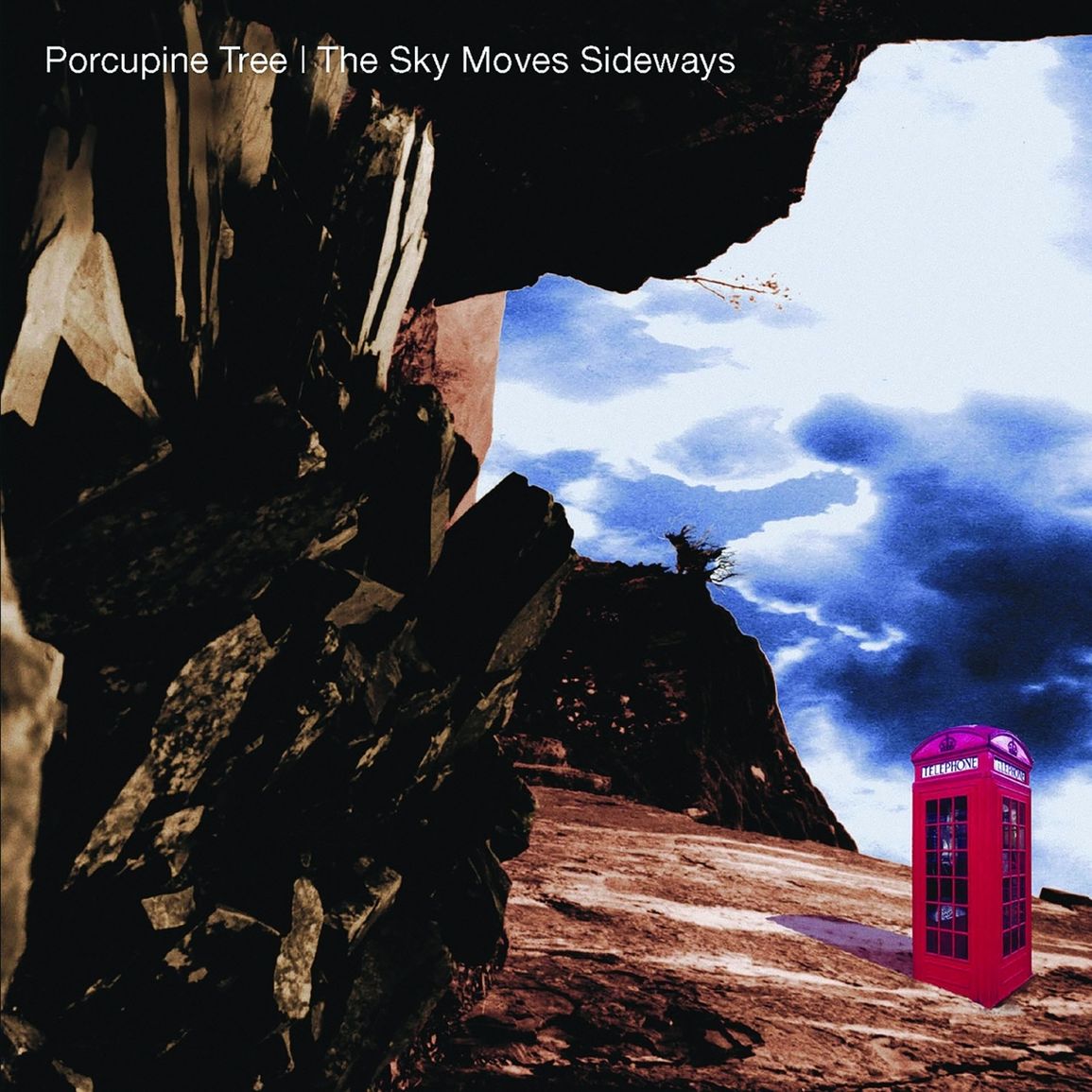
“The Sky Moves Sideways” surely has one of the coolest album covers in Porcupine Tree's catalogue, and just like with “Up the Downstairs”, it really encapsulates the music that awaits the listener. This is without a doubt a notable improvement on “Up the Downstair”. Again, we are talking about the 2004 version of the album, which replaced some of the drum machines with new and original Gavin Harrison drum tracks. Consequentially, “The Sky Moves Sideways” is the only album to feature both Chris Maitland and Harrison behind the kit. So, while “The Sky Moves Sideways” still is more of a Wilson solo project in composition and writing, the instruments are played by the respective band members on each and every song – with “Moonloop” being the first Porcupine Tree track collectively written and composed by a full band. If “Moonloop” really should be considered part of the album, is up for debate though because frankly, the track listing for “The Sky Moves Sideways” is a jumbled mess. On the original EU & UK release, “Moonloop” was 17 minutes long. The US release added “Stars Die” as the second track of the album after “The Sky Moves Sideways Phase 1” and cuts “Moonloop” down to roughly 8 minutes. Then, the 2004 version excludes “Moonloop” and “Stars Die” from the first disc entirely and instead features them on a second disc fronted with an alternate take of “The Sky Moves Sideways Phase 1”, which leads me to believe that both should not be relevant for my assessment of the album. It does more good than bad, I guess, because while “Stars Die” is one of the highlights from this era, “Moonloop” in both versions is the definite lowlight. Overall though, I don't think these technicalities really matter much as “The Sky Moves Sideways”, no matter in which form, is the clearest example of Steven Wilson's tendency to, even if often self-awarely, be really derivative sonically. This album specifically cranks up the influences of Pink Floyd to the maximum, employing, in its most cut-down iteration, the same structure as Pink Floyd's legendary album “Wish You Were Here”, while referencing their more Space- and Psychedelic Rock-adjacent works like “Meddle”. The album does have its revelatory moments, like “The Sky Moves Sideways Phase 1” and “Stars Die”, but falls flat as a whole in my opinion, with too many moments that don't really stick at all, like “Moonloop” and, to an extent, “The Sky Moves Sideways Phase 2” and “Dislocated Day”, ultimately, though on every front, only making it a slight improvement over “Up the Downstair”.
Best Tracks: “The Sky Moves Sideways Phase 1”, “Stars Die” & “The Moon Touches Your Shoulder”
Lowlights: “Moonloop”
“Signify” (Porcupine Tree, 1996)
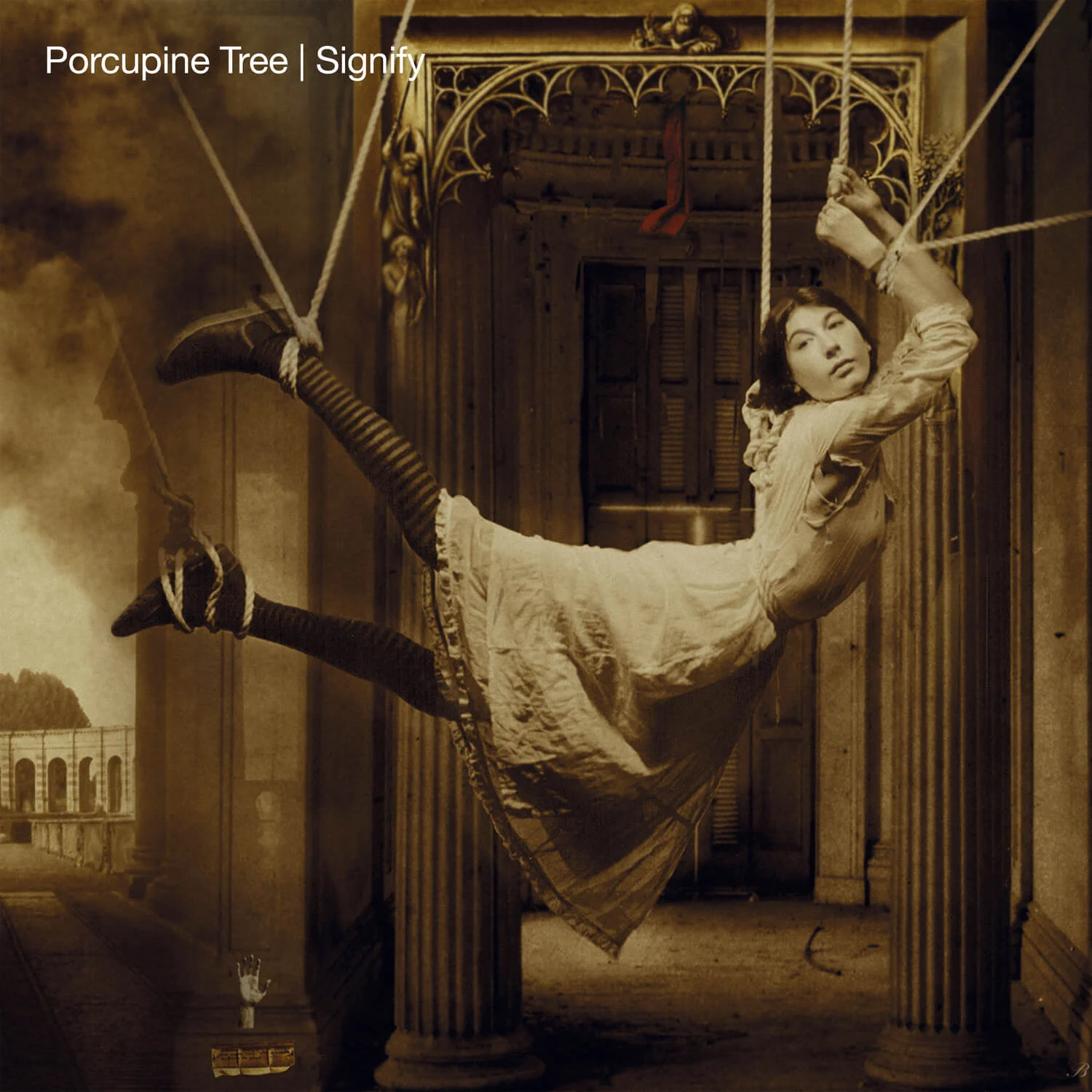
“Signify” was a milestone in Steven Wilson's career and Porcupine Tree's discography in many ways. This is the album where Porcupine Tree became a band and the first album where they really step up their game. I don't think Wilson does came into his own as a songwriter yet, but his musical doings get a big boost in quality through the input of a full band of talented musicians. So, I think this is the perfect opportunity to introduce the band for the first time:
- Steven Wilson: Of course we have the mastermind himself, who sings, plays guitar, plays numerous other instruments, writes most of the material and produces everything himself.
- Richard Barbieri: He is the most integral member of Porcupine Tree after Wilson himself and his position as keyboarder and synth-wizard is the only position in the band behind Wilson that wasn't ever subject to a change in personnel.
- Colin Edwin: He is the jazzy and laid-back Australian bassist of the band, who didn't come back only for the band's latest reunion and, consequently, album. At least onstage, he is surely a calm(ing) presence.
- Chris Maitland: Primarily the band's drummer, Chris Maitland also wrote, sung and played other instruments for Porcupine Tree as long as he was part of the band. Specifically on “Signify”, apart from his contributions in the percussions department, he did vocal harmonies on some songs and wrote the drumless(!) piece “Light Mass Prayers”.
All of these members contributed in several ways to “Signify” and so this could be considered the first real Porcupine Tree album. In light of this fact, it is a good record and far less derivative compared to what Wilson conceived on his own on previous records. The songs here are a little more tuneful overall and the track listing is less confusing. As particular songs from previous albums indicated sporadically already, Wilson has the capacity to write pop tunes and some of these sensibilites are starting to develop on here in the form of “Sleep of No Dreaming”, “Waiting Phase One” and “Every Home Is Wired”. The opening and title track “Signify” also points towards the more heavier sounds the band would explore more and more in the coming years and the closer “Dark Matter” is the first really big highlight in Porcupine Tree's discography. What remains of the inception of Porcupine Tree are lengthy instrumental and even ambient pieces though. While they are more singled out on “Signify”, they still hold the album back from being truly solid.
Best Tracks: “Signify”, “Sleep of No Dreaming”, “Waiting Phase One”, “Sever”, “Dark Matter”
Lowlights: “Idiot Prayer”, “Intermediate Jesus” & “Light Mass Prayers”
“Stupid Dream” (Porcupine Tree, 1999)
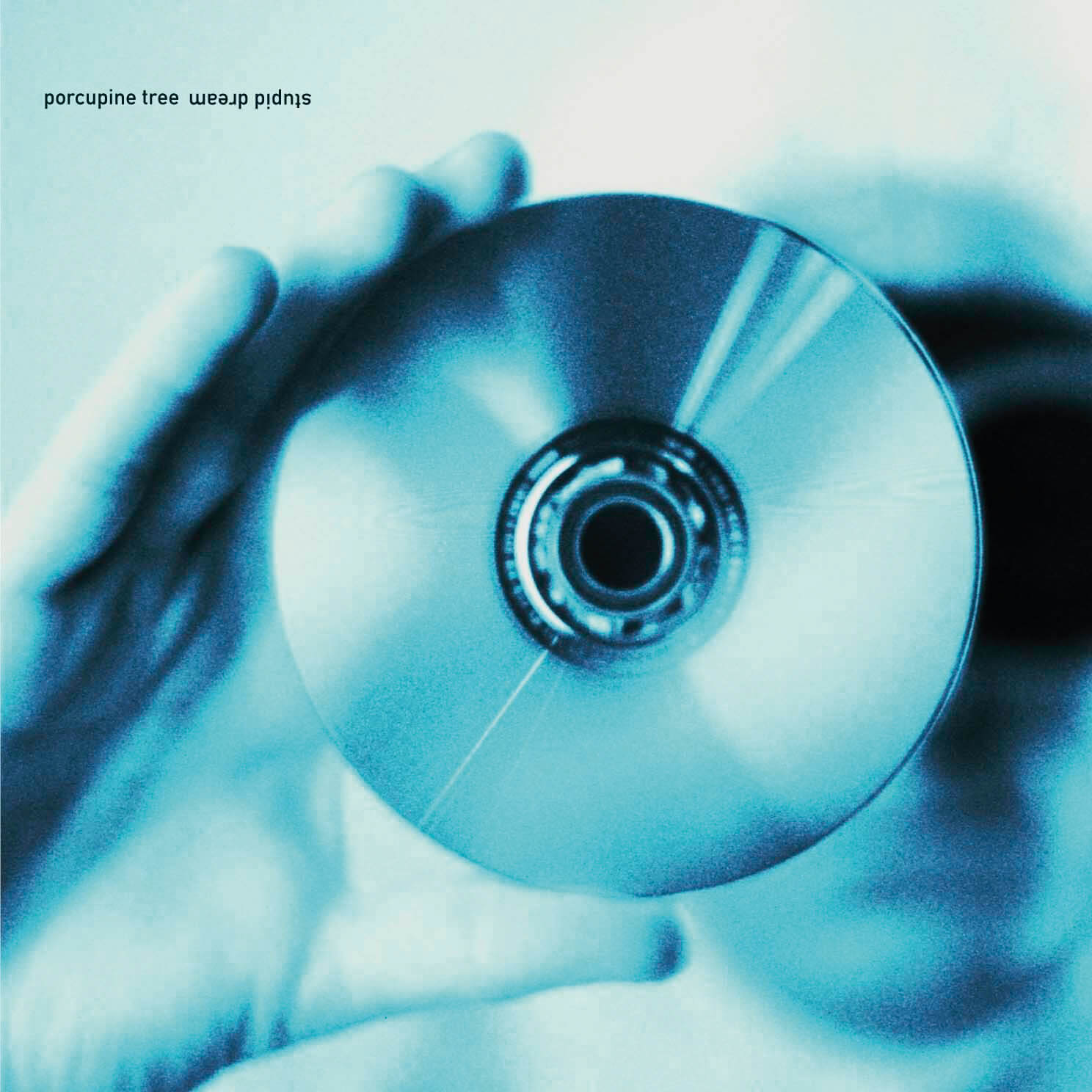
With “Signify” as a transitional- and the first record in a new era of Porcupine Tree, it was time for the band to start dishing out some great albums. The first attempt was 1999s “Stupid Dream” – and, in my opinion, it just falls short of succeeding in this attempt. But let's look at the good things first. “Stupid Dream” sees Porcupine Tree abandoning almost all of the unnecessary instrumental pieces that still held “Signify” back. It contains fantastic longer songs like “Dark Matter” was on “Signify”, a bunch of quality Alternative Rock tunes, some really depressing and slow songs and one instrumental Progressive Rock piece. The result is Porcupine Tree's least bloated album yet. It is consistent even from front to back and almost every song is worth a listen. Compared to “Signify”, “Stupid Dream” sadly is a step-back in one important case: originality. Wilson kind of puts you into it himself through the lyrics of “Pure Narcotic”: ‘You keep me listening to “The Bends”’, he says and references what audibly influenced the album the most: ‘90s Alternative Rock and Brit-Pop. And while the blend with his progressive and psychedelic tendencies could be considered quite unique, it never crosses that line to being groundbreaking. Furthermore, the increased focus on lyrics and songwriting puts another of Wilson’s weaknesses to the forefront: He isn't a particularly gifted writer as he often stays in a mildly inspired space of more or less superficial or, cynically said, pseudo-deep melancholia, taking up perspectives that don't feel or are truly him in a truly authentic way. That is harshly said, but if Steven Wilson is one thing, it's pretentious. And while “Stupid Dream” is far from the worst example of this, the signs are notable here for the first time.
Best Tracks: “Even Less”, “Pure Narcotic”, “Don't Hate Me”, “Stop Swimming”
Lowlights: “This Is No Rehearsal” & “Tinto Brass”
“Lightbulb Sun” (Porcupine Tree, 2000)
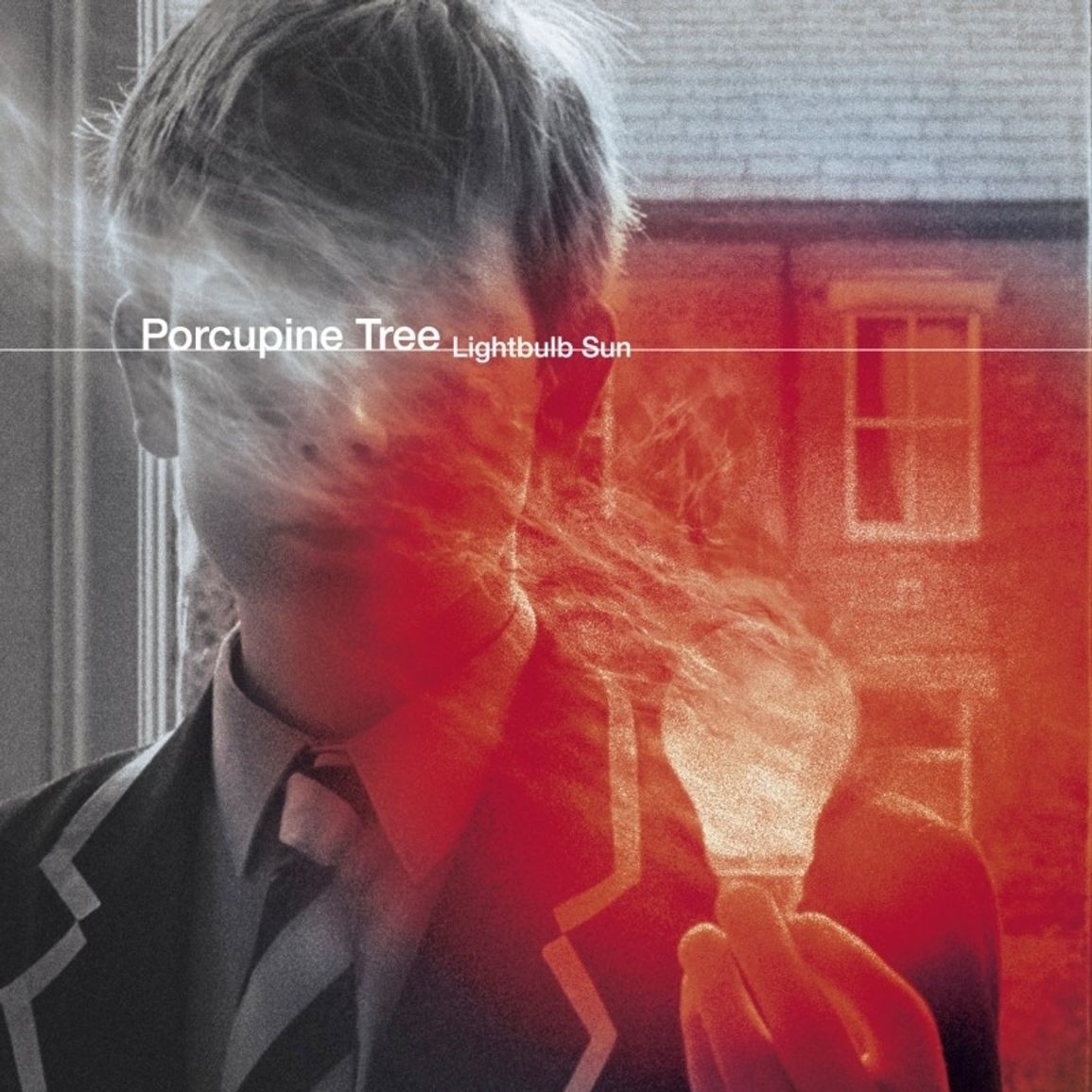
“Lightbulb Sun” is the culmination of the second arc of Porcupine Tree's career, their first as a real band, and Steven Wilson's career so far. It is were the pieces fall into place and were all the things Wilson tried and developed over the years are applied with success. The Psychedelia, the Alternative Rock, the Brit-Pop and the Prog, they come together beautifully within the album. “Lightbulb Sun” finds Wilson at his most clear from a lyrical perspective as well so far. Rarely do the texts come off as too pretentious or simplistic, although there is certainly a measure of each in every one of these songs. In light of the atmosphere the music creates and the great production and compositions, it is forgivable, especially for a non-native English speaker. Even the obligatory ‘Steven-Wilson-Comments-On-Societal-Slash-Cultural-Issues’-track from this album ("Four Chords That Made a Million") is palatable, unlike Steven Wilson's very reactionary commentary on the internet on “Every Home Is Wired” from 1996s “Signify” or the song “The Sound of Muzak”, which we will discuss, when the next album comes up. The title track, “Shesmovedon” and “The Rest Will Flow” are all authentically heartfelt, nostalgic Alternative Rock songs and find Wilson at his most hopelessly romantic and melancholic (the same goes for other songs from the album such as “Last Chance to Evacuate Planet Earth Before It Is Recycled” and “Where We Would Be”), while “Hatesong” and “Russia On Ice” succeed in terms of more lengthy and dark Neo-Prog with great performances and instrumental ideas. Ultimately, “Lightbulb Sun” stands as the first album in Porcupine Tree's discography that is really, if you are not diving into the band's catalogue as a whole, an essential listen when checking them out. I would recommend it front to back.
Best Tracks: “Lightbulb Sun”, “Shesmovedon”, “The Rest Will Flow”, “Hatesong” & “Russia On Ice”
Lowlights: “Feel So Low”
“In Absentia” (Porcupine Tree, 2002)
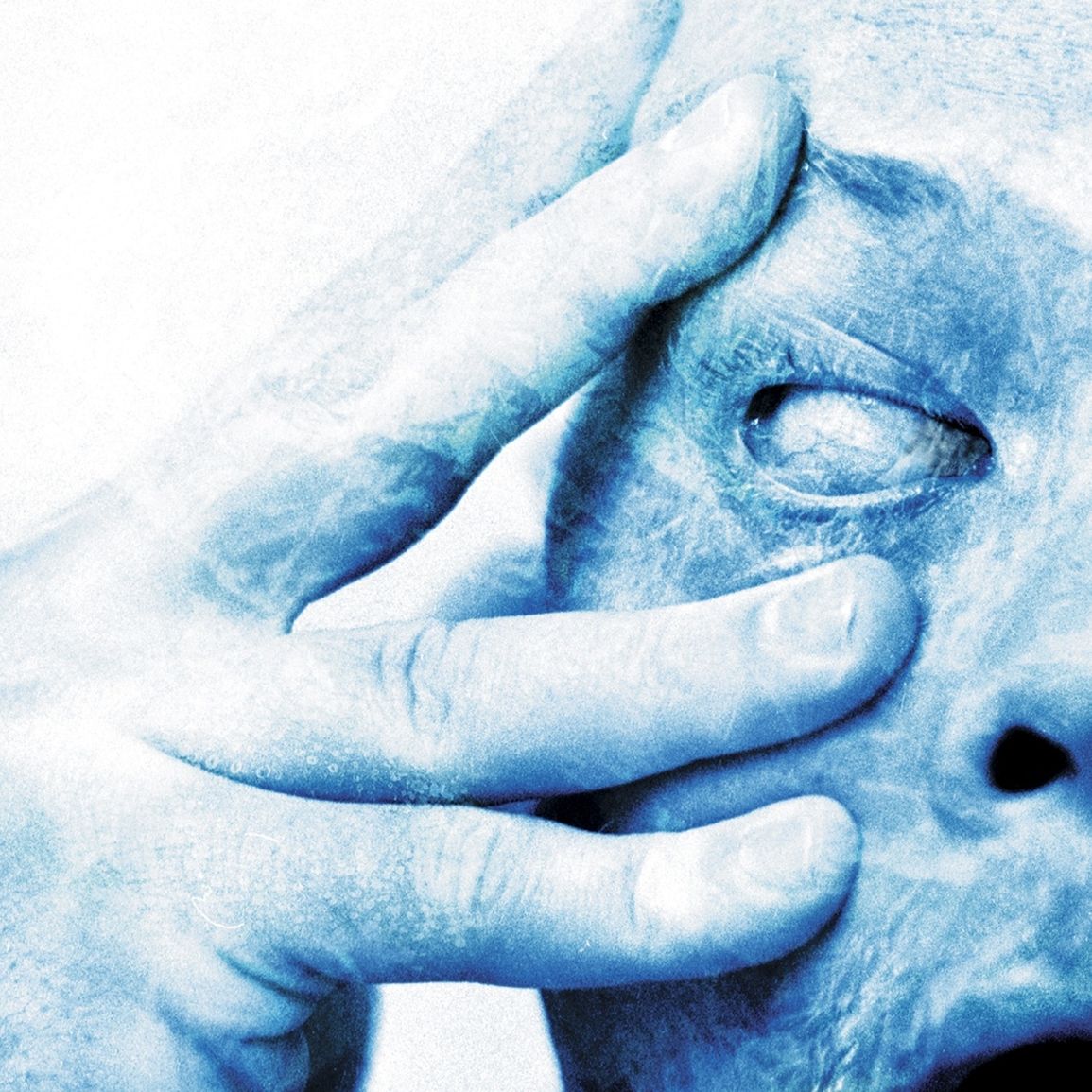
Widely and wrongly regarded as the band's essential album, “In Absentia” is, per my assessment, a more transitional record for Porcupine Tree. It is not their glorious entry, as hailed by many admirers, into Progressive Metal for several reasons. For one, it is very all over the place stylistically and atmospherically. Secondly, it is not glorious in its (in)consistency and thirdly, there is not a single song here that I would classify as Progressive Metal. In fact, I find it difficult to label anything on this album as Prog.
On “In Absentia”, Steven Wilson takes the romantic melancholy of “Lightbulb Sun” and twists it into dark and violent depressiveness. Themes surrounding love and romantic relationships – bad or good, starting or ending – are often replaced by themes of death and violence, but not always as songs like “Trains” and “Prodigal” (two of the biggest highlights here) could've been on “Lighbulb Sun” stylistically and thematically. The biggest difference in these cases lies in the production. I would argue that “In Absentia” is where Steven Wilson really came into his own from that perspective. This album sounds absolutely stellar – crystal clear, almost sterile in every single second.
When it comes to the darker elements of the album, the band comes around with their biggest musical innovation and change: introducing Alternative Metal to their sound. “Blackest Eyes”, “Gravity Eyelids” and “Strip the Soul” all reference or tell about violent crimes, often with a disturbingly sexual undertone, and feature harsh guitars to illustrate these themes. Coming from the perspective of a white male with often reactionary political takes and not very emotionally nuanced songwriting, the inclusion of these themes rightly should make one skeptical. Although I won't make a final judgement in this review, that's for others to do, I personally don't find anything wildly provocative or offensive in these texts (in fact, I don't think Wilson is capable of writing creatively in that way anyway).
On the subject of reactionary takes, I promised to discuss “The Sound of Muzak” from this record; a classic in the band's catalogue and a song I'm very split on. Musically, this is probably one of the finest tunes Wilson wrote up to this point, although I find the drum performance by Gavin Harrison to be a little stiff. Harrison joined the band for “In Absentia”, after Chris Maitland was dismissed due to personal and creative differences, to enable the band to pursue their aspirations to play Metal music. Harrison, an extremely talented and proficient drummer, was, looking at his performances on “In Absentia”, probably held back by Wilson, most notable on “The Sound of Muzak”. But fear not: he will wreak havoc on later albums. Back to discussing “The Sound of Muzak” – the song's content is essentially that music as an art form is dying and being dumbed down; that it will soon only be used to entertain, even control the people to assure their conformity to the system. Coming from someone like Steven Wilson, who isn't known at all for his societally critical or politically nuanced commentary, nor for making provocative music challenging the status quo or pushing it forward in any way, this take just reads as reactionary, conservative bullshit, especially since music – often the very music we all consume and especially the music Wilson is inspired by and making himself – is and has been mostly, even if critical to a degree, enforcing the status quo. Overall, I just hate the impression Wilson gives off here, which is essentially that of an elitist man looking down on all the more popular music his and younger generations of artists make and will be making. It is the typical narrative of the ‘good old days’, which is not progressive, but regressive in every way.
Enough of that though, let's talk about the music to finish this overly long review off. I think “In Absentia” doesn't bring much new to the table in the context of Porcupine Tree's discography. While the band do incorporate some Metal-ish elements, those are only to be found on a few tracks and these mostly aren't highlights of the album. What is admirable about “In Absentia” is its flawless sound, but that alone can't make a record great and the flawlessness of the whole production leads to the album having less character and colour than what came before. Except for the instrumental track “Wedding Nails” and my lyrical problems with “The Sound of Muzak”, every song here is at least enjoyable though, with “Blackest Eyes” and “Trains” being two of the biggest highlights in Porcupine Tree's discography. So, in the end, and I say this as someone who really loved this band once, I find myself really unsure of what to think of the album and so I went with my gut. As someone who once considered himself a big fan of Porcupine Tree, it should come as no surprise that I think this album is really good from front to back, if you can ignore its severe downsides. I can.
Best Tracks: “Blackest Eyes”, “Trains”, “Prodigal”, “Heartattack in a Layby” & “Collapse the Light into Earth”
Lowlights: “The Sound of Muzak” & “Wedding Nails”
“Deadwing” (Porcupine Tree, 2005)
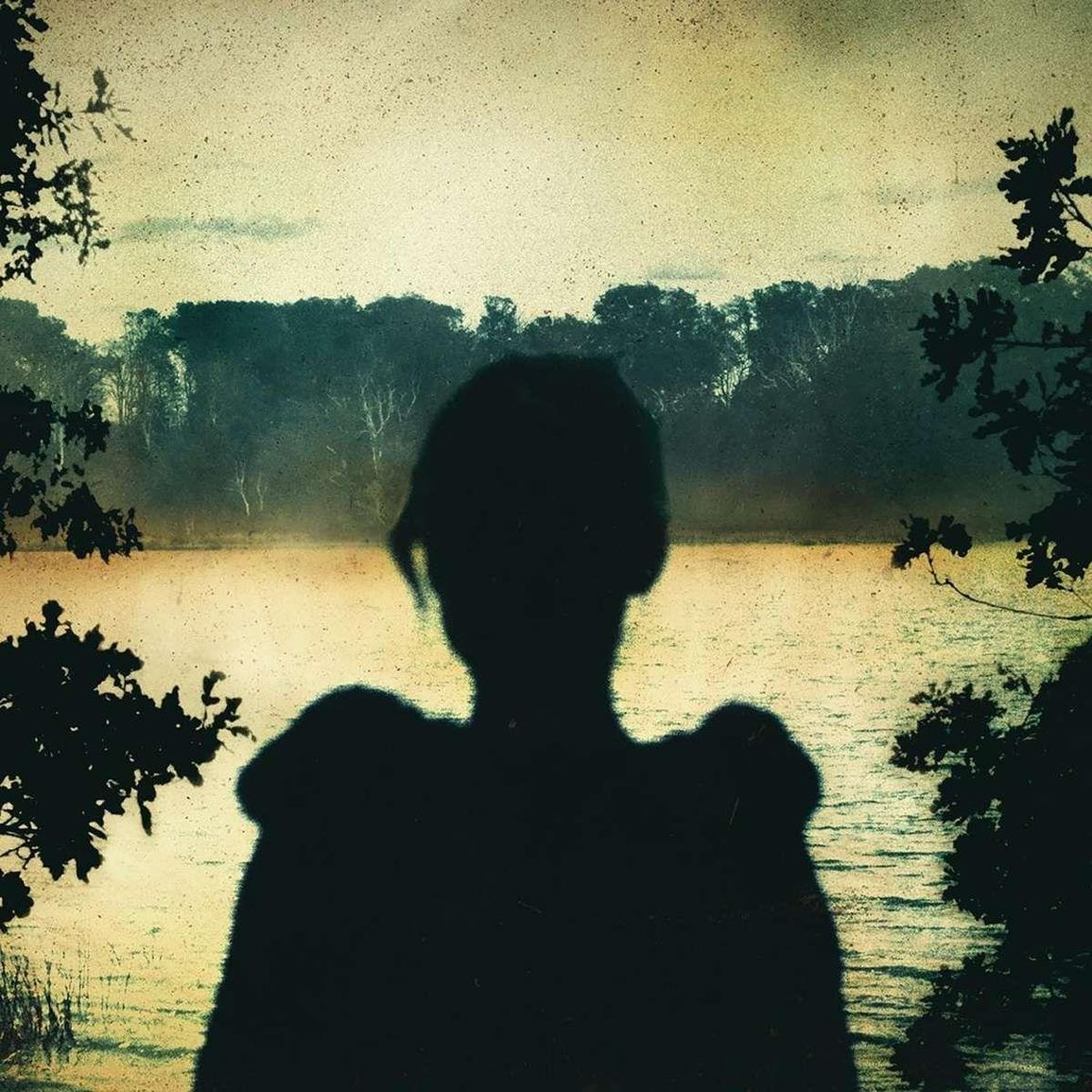
Now, this is the album where Porcupine Tree really completed their shift into what they are mostly remembered for today: Progressive Metal. “Deadwing” – originally the soundtrack to a screenplay Wilson wrote together with Mike Bennion that never became a movie – was the most unified album experience Porcupine Tree put together up to this point, which is even more impactful considering how incredibly cinematic it can be. Point in case: the 12-minute Prog Metal epic “Arriving Somewhere But Not Here”, which combines the ambient synths, vocal harmonies and melodic guitar lines the band is known for with distorted riffs, resulting in an eerie sonic journey about the death of the screenplay's main character. How the rest of the songs contribute to this narrative, I don't know because honestly, I don't find this album to be all that intriguing lyrically – neither intriguing in a positive nor intriguing negative way. What sounds like a point of critique at first, and is certainly something holding “Deadwing” back from competing with some of the best Prog albums of all time, is honestly not that big of a deal for a related reason: It is very easy to ignore what exactly Wilson is saying here – it's reasonable to assume it's not too much anyway – and still enjoy the music and the sound of the words he uses. His words are sounding poetic and there are some memorable lines as well as reoccuring themes here that support the music very well, but the deeper meaning of the lyrics, if it exists, is not something I feel the need to explore; the vibe of the words and music, the sonic intrigue are enough for my musical satisfaction and enough to tie the album's songs together into a unit that I find to be meaningful in some way. Take the song “Deadwing”, the title track, for example: I have no idea what this song is about and still this is one of my favorite Porcupine tree tracks. I also love how the song “Mellotron Scratch” follows up “Arriving Somewhere…”. The song is very gentle and only slightly lifts the mood after its dark and epic predecessor, until its breakdown section unleashes some very euphoric chords that then transition into a beautiful vocal canon. The next song, “Open Car” is a rather dramatic and short Alternative Metal piece that also goes over very well. One song I don't want to leave unmentioned is “Lazarus”, which is this album's “Trains” in a way: a rather peaceful Pop tune that stands as one of the biggest highlights in Porcupine Tree's discography. To sum this up, what I think makes “Deadwing” a rather amazing album, is that its less on the nose than anything Porcupine Tree have ever done, at the very least lyrically, that it is a pleasure to listen to, much like “In Absentia” but in a less sterile way, and that it finally sees Porcupine Tree pulling together a consistent album stylistically, qualitatively and atmospherically without a single exception, while still delivering variety. After “In Absentia” was a way smaller step into a new direction than advertised, “Deadwing” is the result of Porcupine Tree fully committing to a singular vision. The result is one of the best albums in Steven Wilson's career.
Best Tracks: “Deadwing”, “Lazarus”, “Arriving Somewhere But Not Here”, “Mellotron Scratch” & “The Start of Something Beautiful”
Lowlights: “Shallow”
“Fear of a Blank Planet” (Porcupine Tree, 2007)
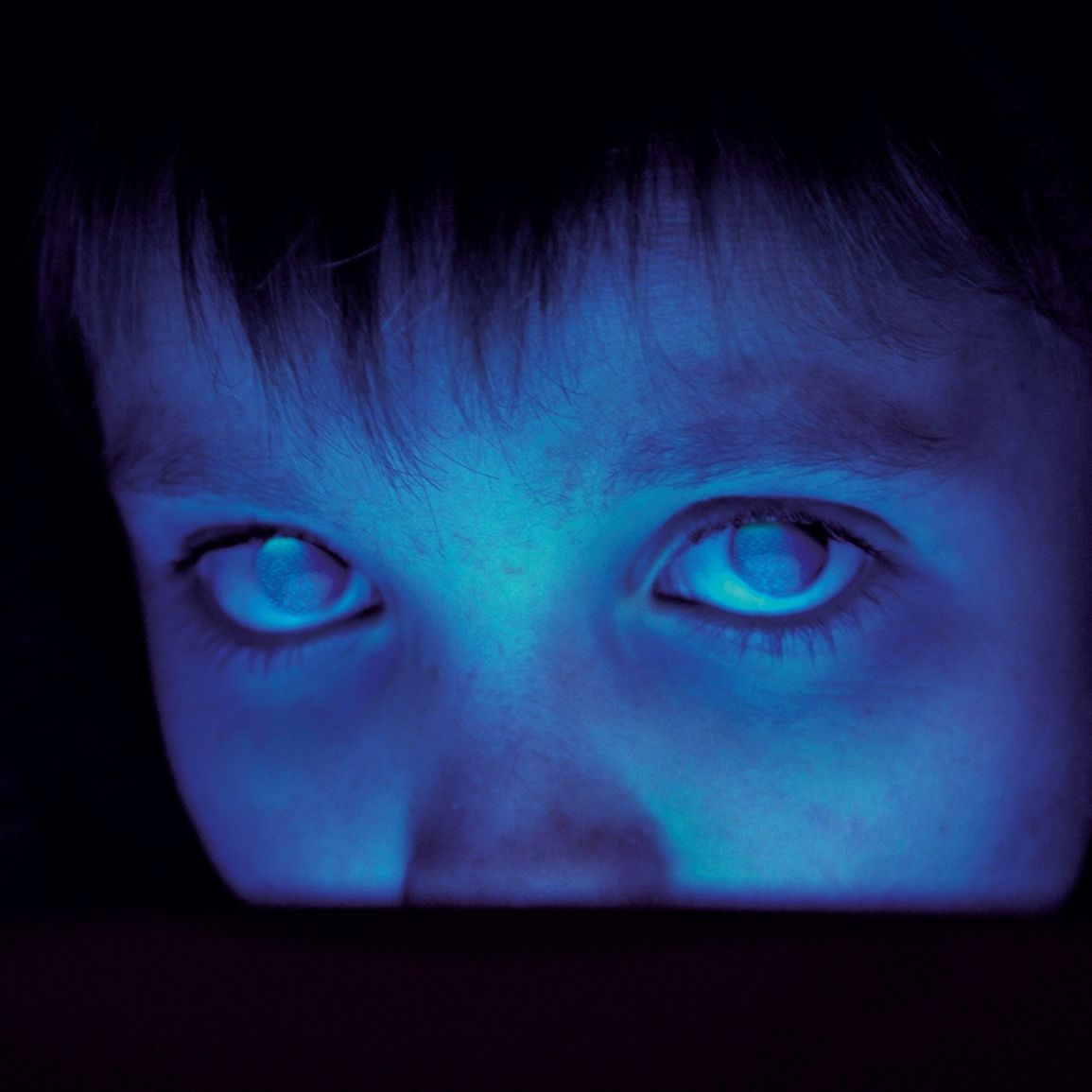
Oh, I was excited to get into this one because I remembered “Fear of a Blank Planet” – a weird reference to Public Enemy's album “Fear of a Black Planet” – to be the undisputedly strongest album by Porcupine Tree, as well as one of their most cringe-worthy lyrically. Okay, so this is a non-exciting thing to say, but I was right. Nonetheless, I forgot how much fun this album is. From start to finish, everything here is very entertaining to my ears. Oh, and, like I promised, this is where Gavin Harrison was let loose. His drumming on “Anesthetize” is absolutely phenomenal. Actually, that whole song is easily the magnum opus of Porcupine Tree's career – 24 minutes of pure musical perfection. Sadly, the songs most mindblowing moment becomes its worst per bad mix and master, which is something I never thought I'd say about something Steven Wilson did or supervised. I hear it was partially fixed on the album's 2024 remaster, although I find that to be worse overall than my earlier vinyl pressing in all honesty. Other than that though, “Fear of a Blank Planet” is produced immaculately of course. I think, even until today, this is the best production by Steven Wilson. It sounds clean, clear and intricate, but not to the point of sterility, lack of nuance, sounding too derivative or dependency on volume, which is what “Deadwing” is often criticised for, simply said. “Fear of a Blank Planet” just sounds natural and deliberate, like the meticulously conceived and performed vision of Wilson and Porcupine Tree was captured onto tape in the perfect way. From every other angle, the album is a refined version of “Deadwing” too. The remnants of what Porcupine Tree was before are not as audible and the Metal elements feel far more at home, while the album's story is easily picked up on and stringently told throughout the track listing. Now comes the bad part: “Fear of a Blank Planet” is pretty much the dark and pretentious Emo version of Porcupine Tree, which goes over fantastically well in the music's ominous tones and Darkwave-esque synthesizers, but not in the lyrics. Like the brilliant album cover indicates, “Fear of a Blank Planet” is a haunting album, yes, but it's also – and a child is depicted on the cover – pretty childish. Okay, that analogy sucks- what I mean is though: “Fear of a Blank Planet” is a full album of Steven Wilson giving social commentary and from all I told you about the guy, it should be obvious that that is not a good thing. In fact, Wilson's social and psychological analysis on this album either reads like that of a 14 year old smart-ass (keyword ‘childish’) or that of a semi-conservative 50 year old – and on the otherwise perfect opening title track, the lyrics are pretty much unignorable. Here are some quotes for you:
I'm stoned in the mall again
Terminally bored, shuffling round the stores
And shoplifting is getting so last year's thing
Xbox is a god to me
A finger on the switch, my mother is a bitch
My father gave up ever trying to talk to me
Now, you could excuse this as a fictional character portrait, but Steven Wilson made it very clear that this is pretty much how he viewed young people or at least, according to the title, how he feared young people to be in the near future. While the second is certainly more understandable than the first, it still, especially in the context of Steven Wilson as a person in general, reads like a rather uninspired and, once again, reactionary take from the guy. It is the same culturally pessimistic bullshit adults have been saying about teenagers for decades. Apart from that, the lyrics are just terribly written too, so let's not get caught up in this discussion too much.
At this point, you might be asking yourselves, why then is this album rated a 90 / 100. Well, I just think the music goes hard. The lyrics are questionable for sure, but they don't really disturb my personal listening experience of this otherwise flawless album. I will admit, this is probably a guilty pleasure of mine, but what can I do when the music just entertains me so well? And I once again have to make this argument: For what Porcupine Tree do – for what they aspire to do – this is perfect in every way except for the lyrical aspect, which is exactly why this doesn't get a 95 or a perfect score. Under that very premise, I would universally recommend this album to anyone who likes Prog or Hard Rock. “Fear of a Blank Planet” is the crowning jewel of Porcupine Tree's discography.
Best Tracks: “Fear of a Blank Planet”, “Anesthetize” & “Way out of Here”
Lowlights: /
“Insurgentes” (Steven Wilson, 2008)

Preceding Porcupine Tree's last album before their extended hiatus is “Insurgentes”, Steven Wilson's first solo album under his own name. From Porcupine Tree only one member contributed to the album. Gavin Harrison plays the drums once again on this one and it's another very solid performance by him all around. Other contributors include legendary bassist Tony Levin, who played with King Crimson and Peter Gabriel, as well as Theo Travis, who would become a staple on Wilson's solo records, playing all sorts of wind instruments.
“Insurgentes” is probably one of Steven Wilson's most experimental records. While the Prog Rock is certainly still there, he brings in some of the moods and elements from the ‘90s, most adjacent to Porcupine Tree’s “Signify” and “Stupid Dream” era, only making them way darker by including Post-Rock, Drone and Ambient influences. The term Art Rock might fit the album better than Prog consequentially. While much of the production and some vocal performances seem as inspired as Wilson has rarely been in the past, the end result is his least memorable album since “Signify” as “Insurgentes” is far from his best collection of songs. In fact, many of the tuneful pieces and even the more abstract soundscapes can seem like sort of a wasteland not only atmospherically, but also compositionally. This cold and grim, almost post-apocalyptic album is one, I return the least to from Wilson's extended catalogue.
Best Tracks: “Harmony Korine”, “No Twilight Within the Courts of the Sun”, “Significant Other” & “Only Child”
Lowlights: “Twilight Coda”, “Get All You Deserve”
“The Incident” (Porcupine Tree, 2009)
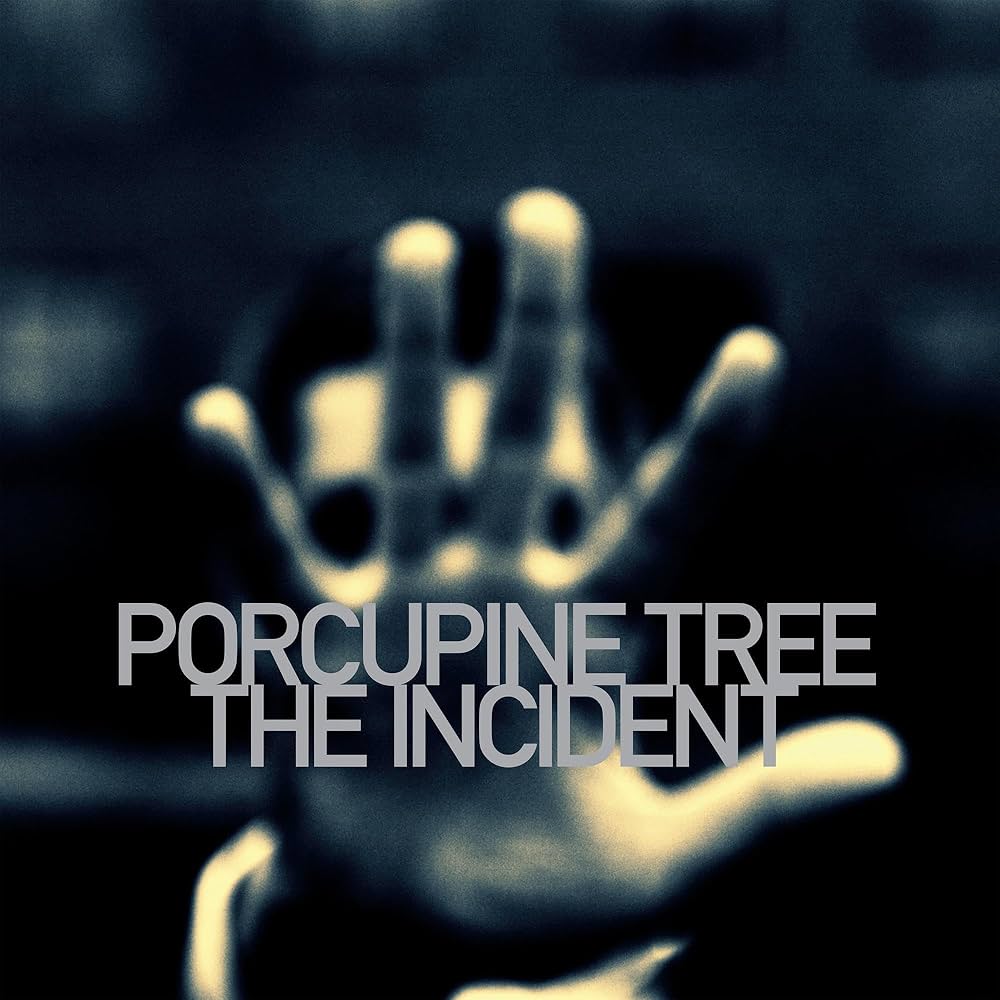
And so we arrive at what was, for over ten years, the final Porcupine Tree album. Steven Wilson seemed more interested in his solo stuff anyways, and if we're being honest, “The Incident” is way less interesting than “Insurgentes” or its successor “Grace for Drowning” in return. I don't know how Wilson himself thinks about “The Incident”, but at least, after its release, Porcupine Tree toured the record and played its first disc in full and almost without breaks. Nevertheless, I think it's definitely an album he is less proud of than “In Absentia” or “Fear of a Blank Planet”. If that is the case, then he is right: “The Incident”, another concept album and sort of a double album too, was a huge step back for the band in every way. Especially in sound and production, it sounds more like something Porcupine Tree would've released between “In Absentia” and “Deadwing”. That's not the only way in which the album is rather regressive though, as it is miles more derivative too than “Fear of a Blank Planet” was for example. The prime example, its biggest track, “Time Flies”, literally rips off Pink Floyd's “Dogs”. Not only does it have the same chord progression, but the way the guitars are produced also sounds almost identical. Yes, it kind of fits with the song's theme of the passing of time and nostalgia – Wilson starts of the song recounting his youth and referencing albums from the year he was born in – but combined with the songs lackluster lyrics, I just can't buy into it (anymore). The way these lyrics are written, full of platitudes and predictable lines, in combination with Wilson's rather stiff vocal performance, makes it so that even on such a universally relatable and obviously emotionally charged topic, he comes off as insincere and emotionless. When Wilson goes all in with his vocals, like on the terrible chorus of “Drawing the Line”, and on other spots of the album, he fails terribly. “The Incident” has some of his worst vocal performances and some of his most bland writing in terms of lyrics and melody. In general, the album just feels a lot less inspired than anything else Wilson had released with Porcupine Tree before. There are a few things the album does well though. Of course, the production and mixing is phenomenal as always, but also, the band manage to pull together an album of 1 hour and 15 minutes that is actually consistent in sound and atmosphere. Even more impressive is how the first disc of “The Incident” flows seamlessly throughout its 14 tracks, although the notion that this is one long song, which is something many fans of the band say, is undoubtedly wrong. I think even the band would acknowledge that they failed in this endeavor. In execution, “The Incident” is probably the least successful, or rather the most unsuccessful concept the band came up and went through with, which becomes even more obvious when listening to the album's second disc. It features four songs that aren't directly connected to the main 14-track movement and those are actually the best songs on the whole album, except for “The Blind House”, which is the first disc's clear highlight, in my opinion.
Overall, “The Incident” is a really disappointing follow-up to “Fear of a Blank Planet” and, even for fans of Porcupine Tree, was a rather unsatisfying ending to their career as a band. Although this review probably read as a total take-down of the album, I think it's ultimately a fine record. Certainly worse than anything they released since the mid-'90s, but apart from some aspects and two particular tracks, nothing here is terrible really.
Best Tracks: “The Blind House”, “The Incident”, “Time Flies”, “I Drive the Hearse”, “Flicker”, “Bonnie the Cat”, “Black Dahlia” & “Remember Me Lover”
Lowlights: “Occam's Razor”, “Kneel and Disconnect”, “Drawing the Line”, “Your Unpleasant Family”, “Degree Zero of Liberty”, “Circle of Mania”